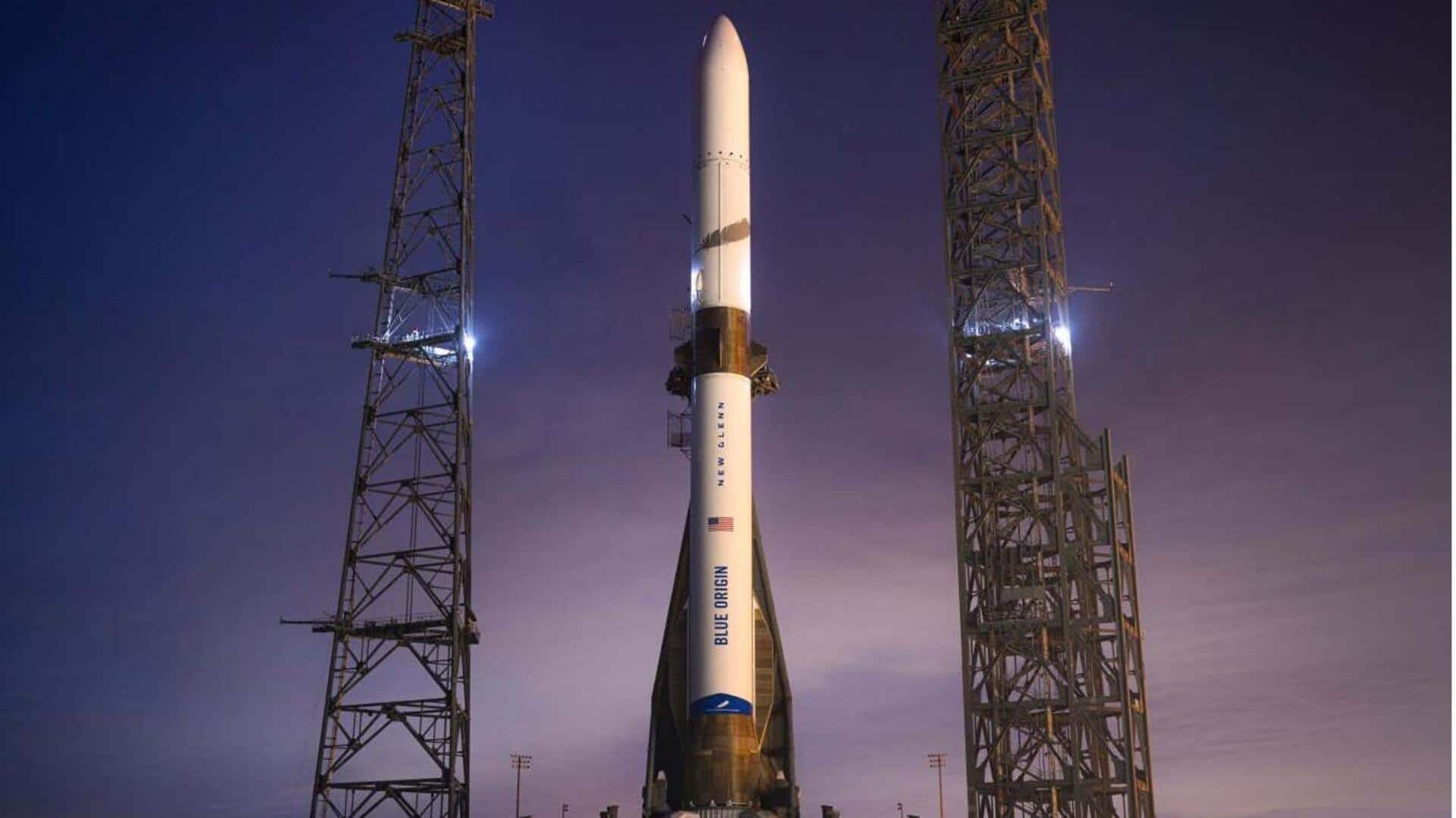
Blue Origin's first orbital launch of New Glenn rocket today
What's the story
Jeff Bezos's space company, Blue Origin, is gearing up for its first orbital launch with the New Glenn rocket. The mission, dubbed NG-1, will be launched from Cape Canaveral Space Force Station in Florida. The launch window opens at around 11:30am IST today. This major milestone opens a new chapter in the commercial space race and could even take on SpaceX's reign in the field.
Space competition
New Glenn: A challenger to SpaceX's dominance
The New Glenn rocket, named after legendary astronaut John Glenn, towers at a staggering 320 feet. It consists of two main stages. The first stage, known as GS1, is powered by seven BE-4 engines, which are the most powerful liquefied natural gas (LNG)-fueled engines ever developed. Each BE-4 engine generates approximately 550,000 pound of thrust. The second stage, referred to as GS2, is powered by two BE-3U engines that utilize liquid oxygen and liquid hydrogen as propellants.
Mission details
New Glenn's post-launch plans and test flight details
After launch, Blue Origin will land the first-stage booster on a drone ship stationed some 1,000km away in the Atlantic Ocean. This will mark Blue Origin's first attempt at such a landing. The rocket's upper stage will fire its engines toward Earth orbit, hitting an altitude of some 19,312km. The test flight will last for about six hours. This launch marks Bezos's entry into the race against Elon Musk, whose company SpaceX dominates the orbital launch market.
Rocket potential
New Glenn's capabilities and future contracts
The New Glenn rocket is bigger than SpaceX's Falcon 9 and will be able to carry heavier payloads. It features a wider payload fairing, one that can fit the equivalent of 20 moving trucks. Blue Origin has already signed a contract with NASA to launch two Mars probes using New Glenn. The rocket will also be used for Project Kuiper, a satellite internet constellation to take on Starlink.
Long-term goals
Bezos's space vision and potential impact of New Glenn's success
Bezos, who founded Blue Origin in 2000, envisions moving heavy industry off-planet onto floating space platforms to save Earth. If New Glenn succeeds, it will give the US government "dissimilar redundancy," a valuable backup if one system fails. This, according to Scott Pace, a space policy analyst at George Washington University. The launch was originally scheduled for Sunday but was delayed due to bad sea conditions.